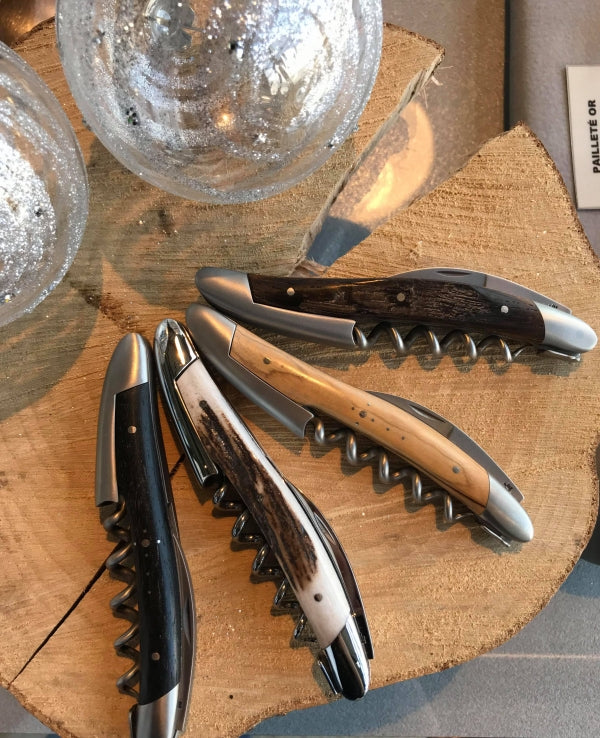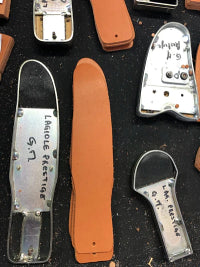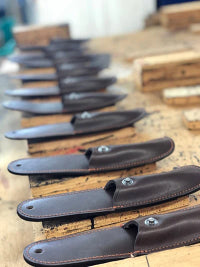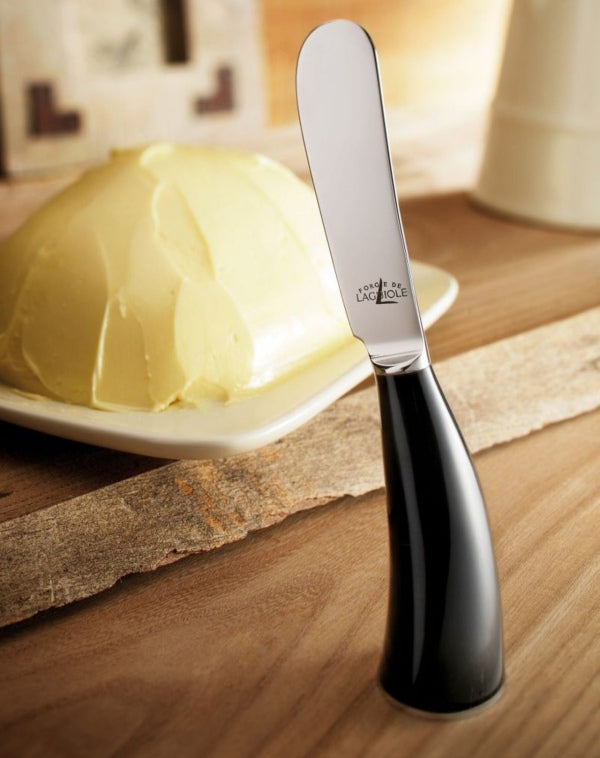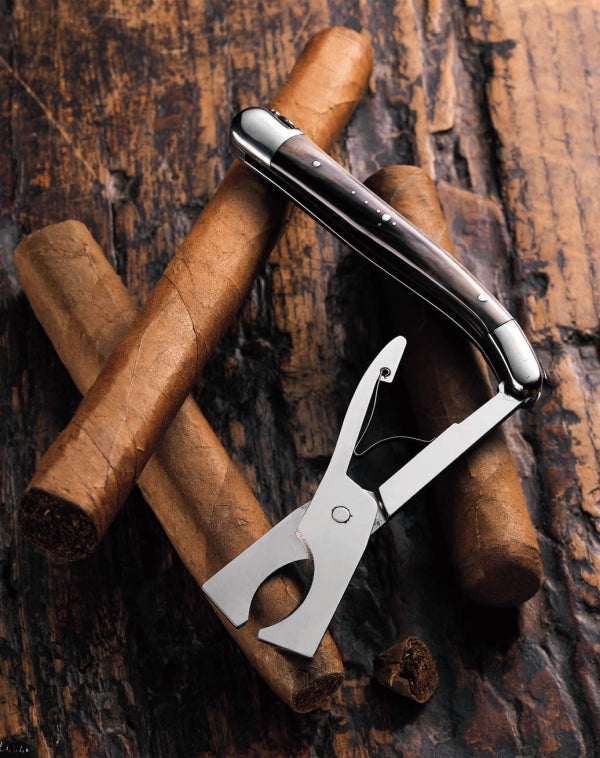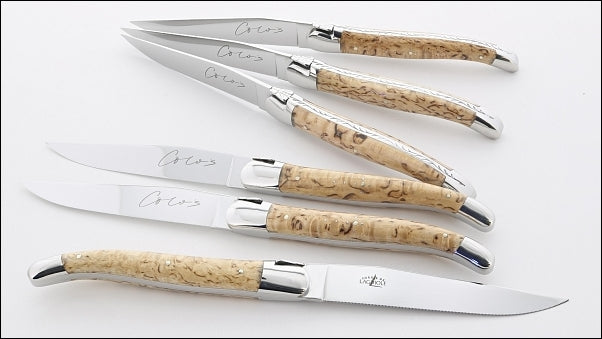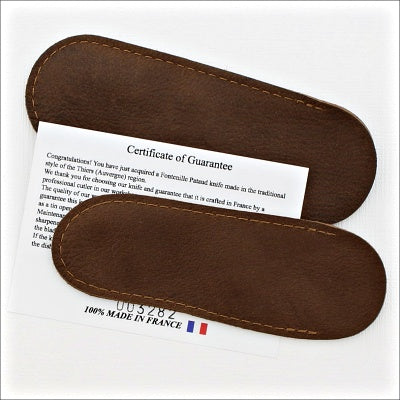The Laguiole knife first appeared in the tiny village of Laguiole, France, during the early 1820s. Several decades after, the manufacturing expanded to the more industrialized city of Thiers, France, where this knife was made.
This knife was entirely handmade in Europe's capital of cutlery, "Thiers." The "Gilles®" Fontenille Pataud collection of knives are considered by many to be some of the best pocket knives money can buy. All Knives offered by Gilles are entirely made by a single craftsman, ensuring pride of ownership of the final piece.
Technical aspects: This 11 cm handle Laguiole folding knife features a forged bee, a full-length hand chiseled spring, and of course, the famous shepherd cross on most models (check photo). This knife also features a solid hardened blade stop to help prevent the blade's edge from making contact with the inner area of the spring.
Guilloche: The Guilloché series features additional chiseling of the spring, liners (top & bottom), and the entire blade top edge.
What is a Forged Bee? You can recognize a forged bee when you look just below it, where it meets the decorated spring. If you do not see any gaps, it's a good sign that the bee and spring were forged from the same piece of metal. You can also recognize a soldered bee by noticing a straight gap/ridge where the bee meets the spring.
Most inexpensive Laguiole pocket knives found on the market have a soldered bee. Adding the bee to the spring by soldering saves time and money; this is why the cost of soldered bee knives can be substantially less. The original Laguiole knives had forged bees.

